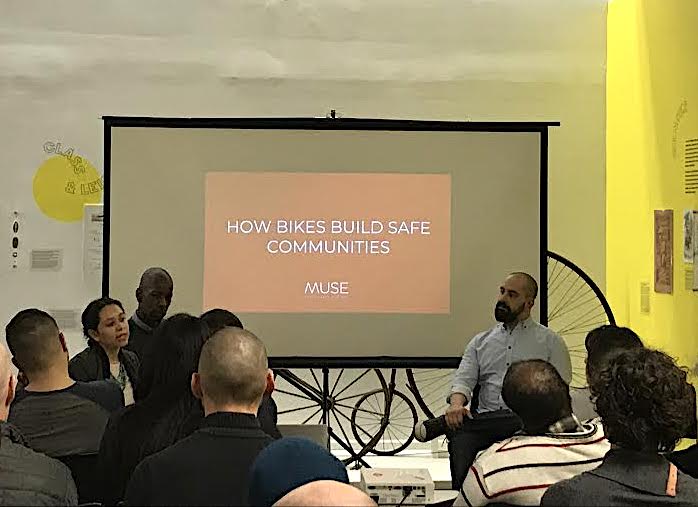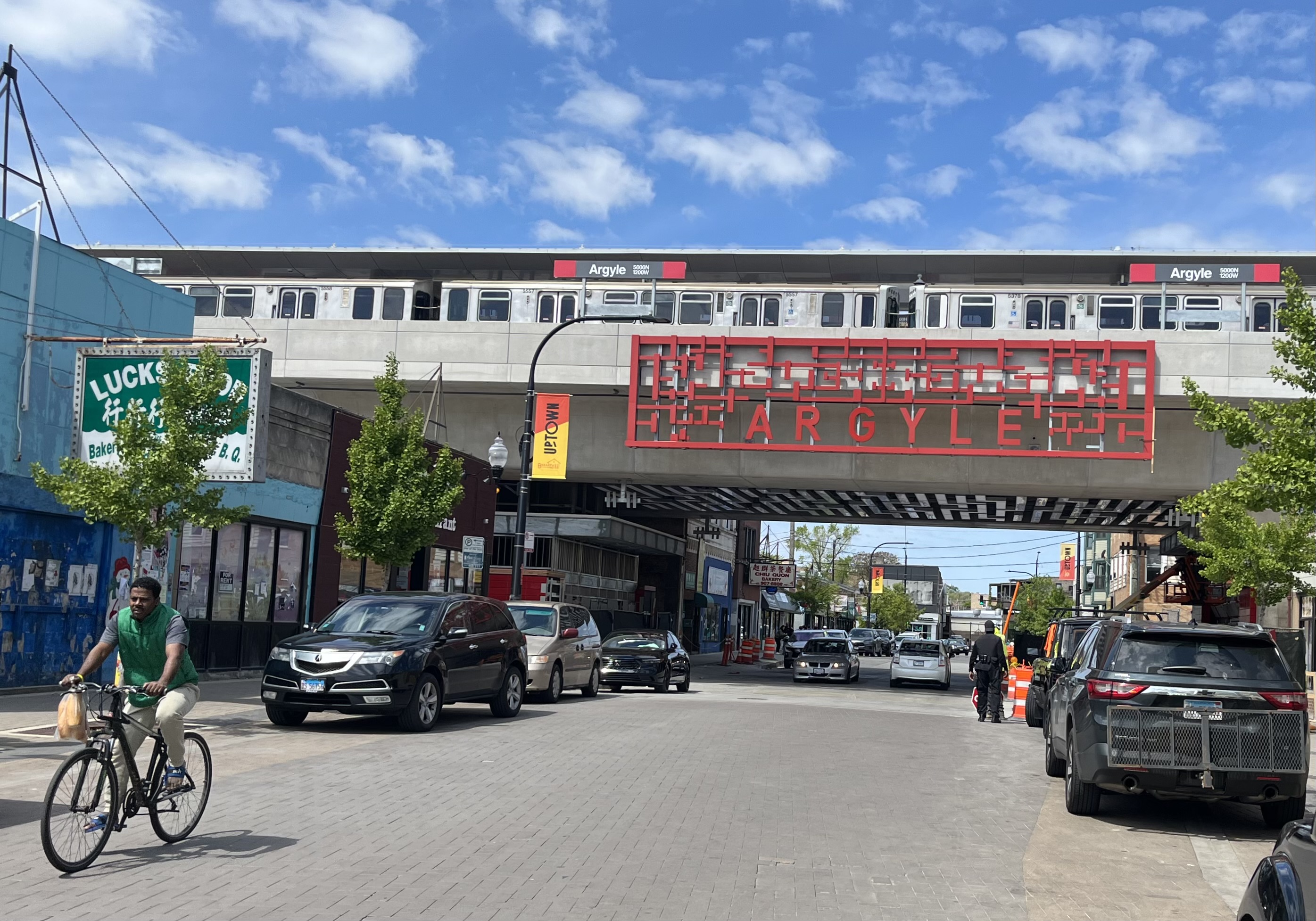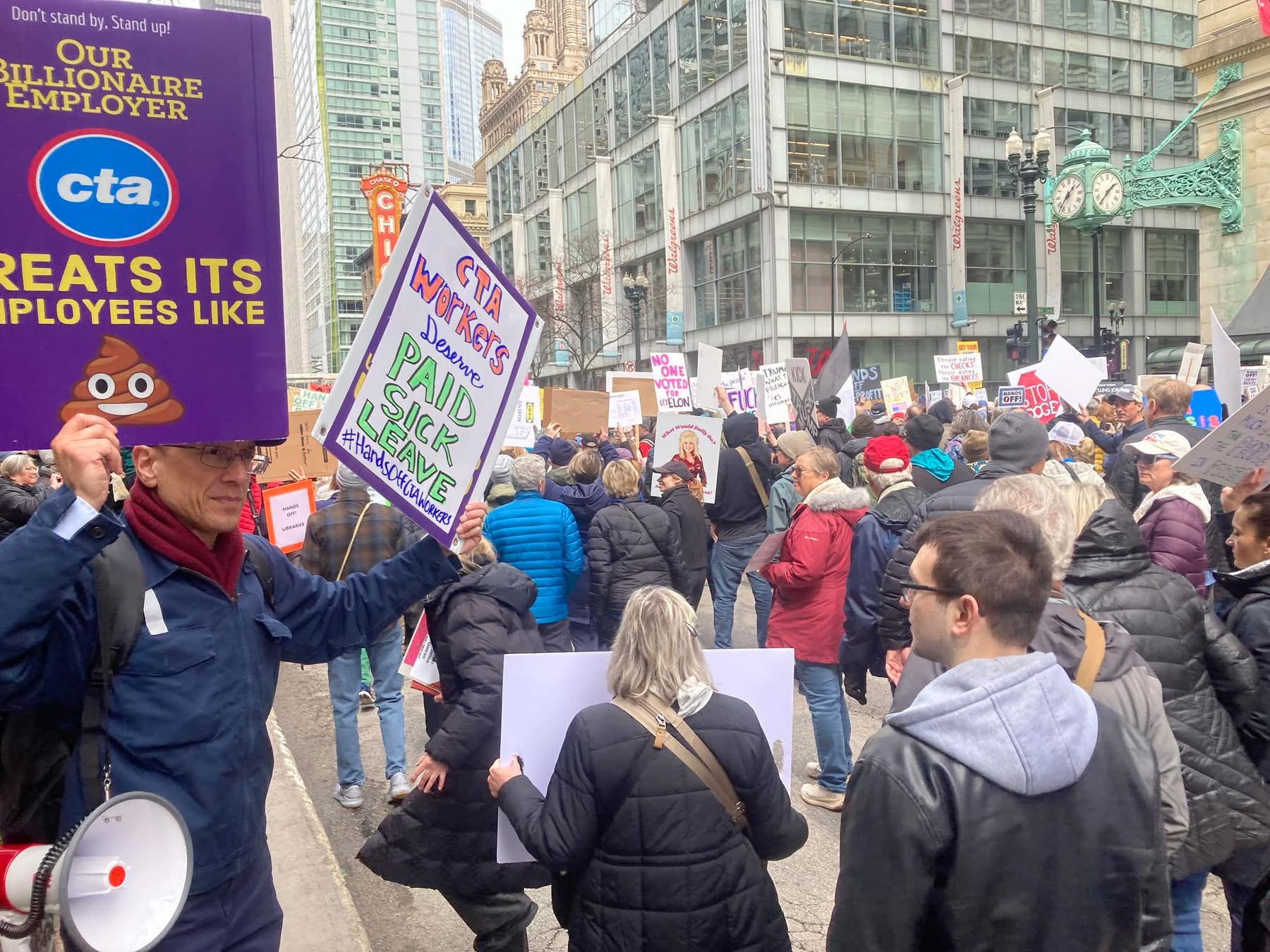As part of the Design Museum of Chicago's Keep Moving exhibit on local bike culture, which closes in March, they've been hosting a series of talks about how cycling helps create communities. The latest forum included Romina Castillo, community planner at Muse Community + Design, and a Vision Zero consultant at the Chicago Department of Transportation; David Pufundt of Envision Unlimited, and James Craig, a special events coordinator at Test Positive Aware Network.
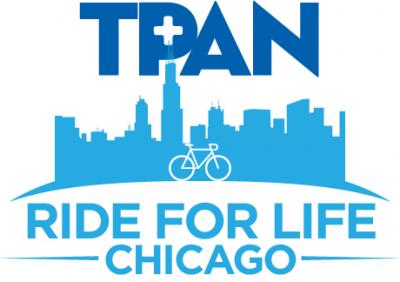
Craig discussed TPAN’s Ride for Life Chicago, the tri-state cycling and fundraising event meant to help TPAN provide HIV treatment to Chicagoans and HIV health and treatment information to readers of their Positively Aware magazine. Participants commit to cycling 100 or 200 miles over 2 days starting in Chicago and riding through Indiana into Michigan. He spoke about how participants build community and how the ride also helps build inclusivity in the cycling community.
“In cycling, we tend to hear a male perspective,” Craig said. “The great thing about this event is we open it up to anyone to participate. This event helps illuminate different parts of cycling we don’t see often.”
Castillo’s remarks focused on the question, “What is the relationship of bikes and places, and bikes and people?” She discussed the need to consider how some places don't feel safe to people traveling through them or spending time there, and the role bikes can play in promoting a sense of safety. “Bikes are part of trying to democratize streets by giving equitable pieces of the road to different road users,” she said. “When we create streets where different modes feel safe, that is what complete streets are.”
Castillo asked the audience to imagine what a safe street looks like, and think about what characterizes that street. “When we think about a good memory of a street, it usually has more than cars,” she said.
The idea of safe streets is central to Vision Zero, a global movement to eliminate serious and fatal crashes, which officially launched in Chicago in summer 2017. One principle of Vision Zero, Castillo said, is that crashes are not accidents; they can be prevented if we have the right tools, and bikes can be one of those tools. “Bikes have been tools for social transformation,” she said. “They have become tools for people to advocate for personal safety.”
Castillo also discussed Ghost Bikes Chicago, a group that installs white-painted bicycles at crash sites as memorials to fallen cyclists, and the annual Ride of Silence, which honors those who have been killed or injured while biking.
“When we talk about safety, we have to keep in mind what safety means for different kinds of people,” Castillo added. “Safety and the perception of safety will depend on who you are and where you’re from.”
Castillo discussed Slow Roll Chicago, a nonprofit that has encouraged cycling in low-to-moderate income communities of color with group rides and other outreach strategies. “Through Slow Roll, we allowed [residents] to define what safe means to them,” said Castillo. “Bikes help create safe places for people that will help create safe communities.”
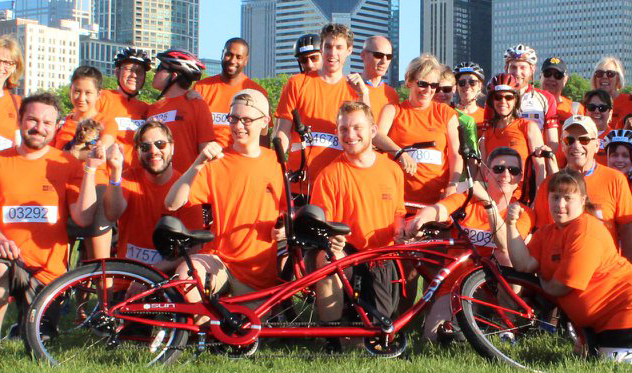
Pufundt is the adventures coordinator at Envision Unlimited, an organization serving people with intellectual and developmental disabilities. Pufundt brought up three clients to discuss how bikes help them in their daily lives. They discussed riding on the Bloomingdale Trail, aka The 606, and participating in Bike the Drive. “Cycling gives us a voice, something to talk about together,” Pufundt said. He said the Bloomingdale has become a safe place for people to feel joy and independence on a bike.
Castillo added that not everyone has places like the 606 in their neighborhood. “We need to create opportunities for more kids and people to feel that joy,” she said.
